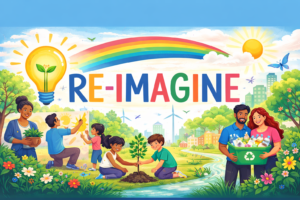Supporting Our Youth: Responding to School Shootings
Another devastating school shooting has impacted the Metro-Denver community. We mourn Kendrick Ray Castillo who was killed while protecting other students and hold all of the students of STEM School Highlands Ranch in our hearts. This week’s tragedy was preceded by the credible threat of violence which resulted in local school closures for half a million students the week of the 20th Anniversary of the school shooting at Columbine, and last week’s shooting at the University of North Carolina at Charlotte.
With the seemingly steady pace of school violence it can feel overwhelming, heartbreaking, and hopeless. At The Conflict Center, we do not pretend to have all the answers to the complicated issues which contribute to shootings and other acts of violence at schools. However, during difficult times we do find that connecting to some of our key principles bolsters our resolve and work, helping us find purpose.
- One of the founding principles of The Conflict Center is “Conflict is Inevitable, Violence is Not.” That core belief is more essential today than ever. The news of shootings and violence in schools come with such regularity, it is easy to fall into the trap of expecting another or resigning ourselves to a sense of inevitability. We cannot succumb to accepting acts of violence as absolute. Resisting apathy and expecting that nonviolence can prevail is an essential part of our ongoing work.
- Youth need more support and resources. Lockdown drills have become commonplace for youth in schools.The emotional literacy of learning to understand anger and name their emotions should also be commonplace. It is imperative that adults model talking about issues, sharing emotions, and providing support in formal and informal ways. At home, in schools, in extracurricular activities – wherever youth are – we have an opportunity to provide a space where they are heard, valued, and supported. Below is a list of resources to help navigate conversations about the events at STEM School Highland Ranch.
- Restorative Practices provide useful tools to process these experiences and amplify youth voice, especially in a school setting. Connection circles, in particular, are a tool that can help youth process pain, fear, and complicated emotions while feeling more connected to others within their classroom. TCC’s Processing Impactful Events: Restorative Connection Circles provides guidance to educators to utilize connection circles in this way.
The Conflict Center hopes that you will join us in our resolve to continue supporting and honoring students voices and perspectives while remaining steadfast in our resolve to disrupt patterns of violence.
Resources to help navigate conversations about school violence
Talking to Children About Violence: Tips for Parents and Teachers (English)
Additional languages: Spanish/Español | Arabic | Vietnamese | Somali/Soomaali | Amharic | Korean | French/Français | Kurdish
Talking to Children About School Shootings
How to Talk to Kids About Gun Violence
Helping Kids Understand Frightening Events
Managing Strong Emotional Reactions to Traumatic Events: Tips for Families and Teachers



